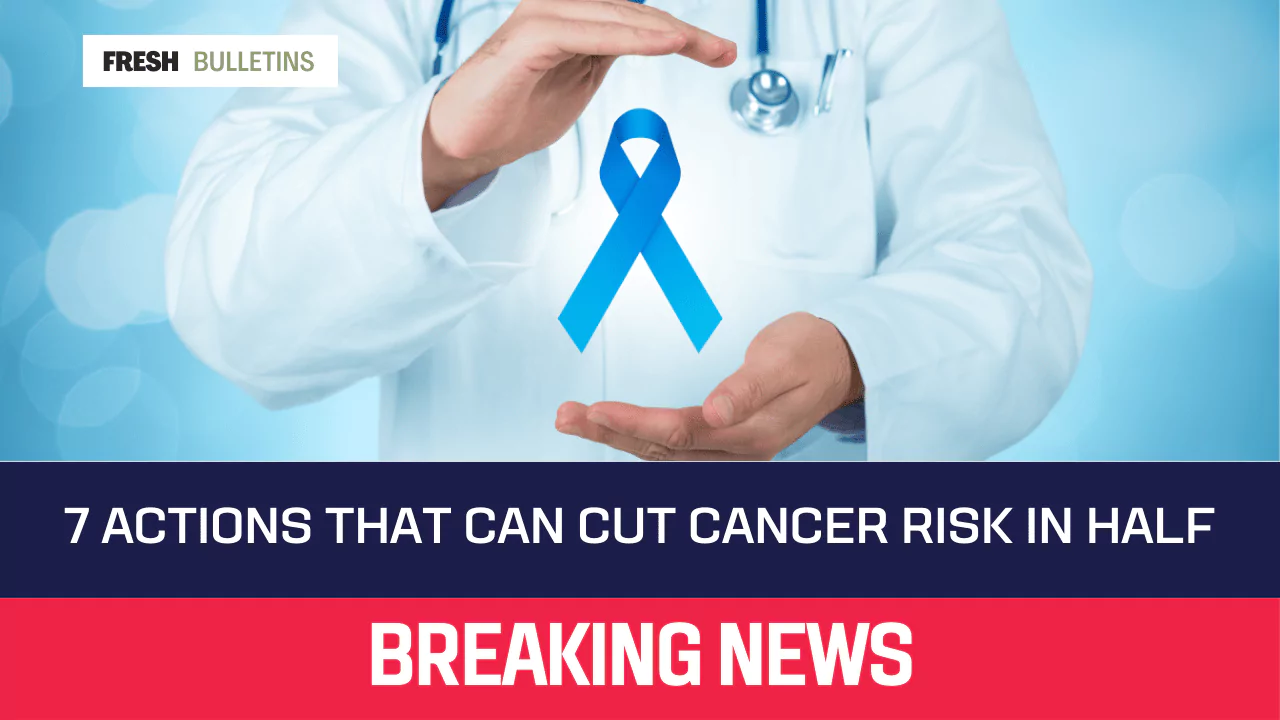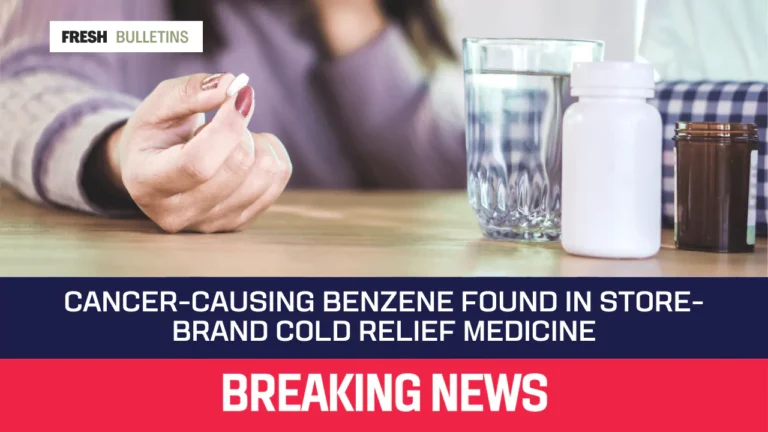7 Actions That Can Cut Cancer Risk In Half
Cancer is a leading cause of death worldwide, but research shows that about half of all cancer cases can be prevented through lifestyle changes. This article outlines seven key actions that can significantly reduce your cancer risk. By making these changes, you can take control of your health and lower your chances of developing cancer.
Avoid Harmful Substances
Tobacco
Tobacco consumption is the primary factor contributing to cancer-related fatalities that could have been avoided. Smoking is a direct cause of lung cancer as well as various other forms of cancer. It induces DNA damage, impairs the immune system, and triggers inflammation. Ceasing smoking or abstaining from starting in the first place is among the most effective methods to decrease the likelihood of developing cancer.
Alcohol
Drinking too much alcohol increases the risk of several cancers, including liver, breast, and colon cancer. It can damage cells and make it harder for your body to absorb nutrients. Limiting alcohol intake or avoiding it completely can lower your cancer risk.
Environmental Pollution
Exposure to pollution, chemicals, and radiation can increase cancer risk. This includes air pollution, pesticides, and industrial chemicals. Reducing exposure to these substances can help protect against cancer.
7 Actions That Can Cut Cancer Risk In Half
Maintain a Healthy Weight
Extra body weight can increase cancer risk. Fat tissue produces hormones and inflammation that can promote cancer growth. Keeping a healthy weight through diet and exercise can lower your risk of several types of cancer.
Follow a Healthy Diet
Eating a diet rich in fruits, vegetables, and whole grains can help prevent cancer. These foods contain vitamins, minerals, and antioxidants that protect cells from damage. Limiting red meat and processed foods can also reduce cancer risk.
Exercise Regularly
Engaging in physical activity aids in the maintenance of a desirable body weight and enhances the functioning of the immune system. Additionally, it has the ability to decrease inflammation and enhance hormone levels. Strive to achieve a minimum of 150 minutes of moderate exercise or 75 minutes of strenuous exercise per week.
Avoid Tobacco
It is essential to stop smoking or never start if you want to prevent cancer. Avoiding secondhand smoke is part of this, as it can raise the risk of cancer. If you smoke, discuss quitting with your physician.
Limit Alcohol Consumption
Consume alcohol in moderate amounts. Women should limit their alcohol consumption to a maximum of one drink per day. Men should limit their alcohol consumption to a maximum of two drinks each day. Abstaining from alcohol entirely can be advantageous for certain individuals.
Protect Yourself from the Sun
Excessive exposure to sunlight might result in the development of skin cancer. Apply sunscreen with a minimum Sun Protection Factor (SPF) of 30, utilize protective garments, and refrain from using tanning beds. Take refuge in shaded areas during the peak hours of the day when the sun’s intensity is at its highest.
Get Regular Screenings and Vaccinations
Regular cancer screenings can identify cancer at an early stage, when it is most susceptible to treatment. Specific immunizations, such as the HPV vaccine, have the ability to thwart particular forms of cancer. Consult your physician regarding the appropriate exams and vaccinations for your specific needs.
Protect Against Cancer-Causing Factors
Sun Exposure
Ultraviolet (UV) radiation from the sun can damage skin cells and lead to skin cancer. Protect your skin by using sunscreen, wearing protective clothing, and avoiding tanning beds.
Vaccinations
Certain viruses have the ability to induce the development of cancer. The HPV vaccine has the ability to avert the occurrence of cervical cancer as well as other types of cancers that are caused by the human papillomavirus (HPV). The administration of the hepatitis B vaccine can effectively minimize the risk of developing liver cancer. Consult your physician regarding the recommended vaccines for your specific needs.
Radon Testing
Radon, a naturally occurring gaseous element, poses a significant health risk due to its potential to induce lung cancer. It has the ability to accumulate within residential and commercial structures. It is imperative to conduct radon testing within one’s home to ascertain levels and, if found to be elevated, promptly implement mitigation measures to minimize exposure.
Hormonal Factors
Certain hormonal factors can elevate the likelihood of developing cancer. This encompasses the utilization of hormone replacement treatment or oral contraceptives. Engage in a discussion with your doctor regarding the potential hazards and advantages of these treatments.
Family History
Some cancers can run in families. If you have a family history of cancer, talk to your doctor about genetic testing and early screening options.
Regular Medical Care and Screening
Importance of regular check-ups
Regular check-ups can help detect cancer early. They also allow your doctor to assess your overall health and discuss ways to reduce your cancer risk. Don’t skip these important appointments.
Early detection through screenings
Cancer screenings have the ability to detect cancer prior to the manifestation of any symptoms. This enhances the efficacy of the treatment. Typical checkups comprise mammograms for breast cancer, colonoscopies for colorectal cancer, and Pap tests for cervical cancer.
Making informed decisions about cancer prevention
Work with your doctor to create a cancer prevention plan that’s right for you. This may include lifestyle changes, screenings, and other preventive measures based on your personal risk factors.
Taking these steps can significantly reduce your cancer risk. While there’s no guarantee you won’t get cancer, these actions can lower your chances and improve your overall health. Remember, it’s never too late to start making healthy changes. Every step you take towards a healthier lifestyle can make a difference in your cancer risk and overall well-being.







